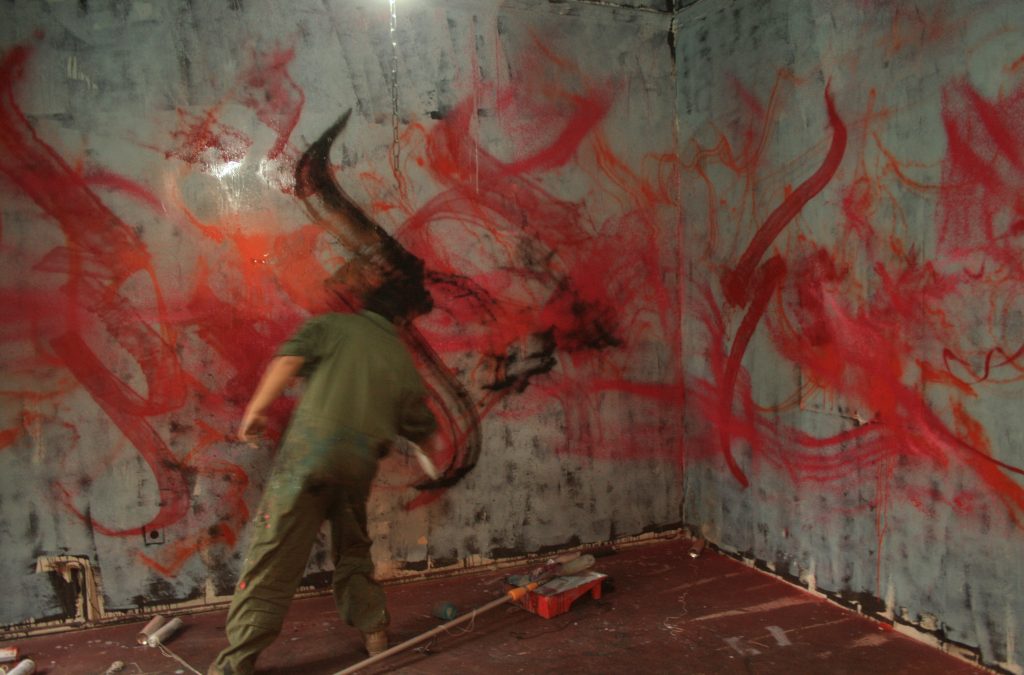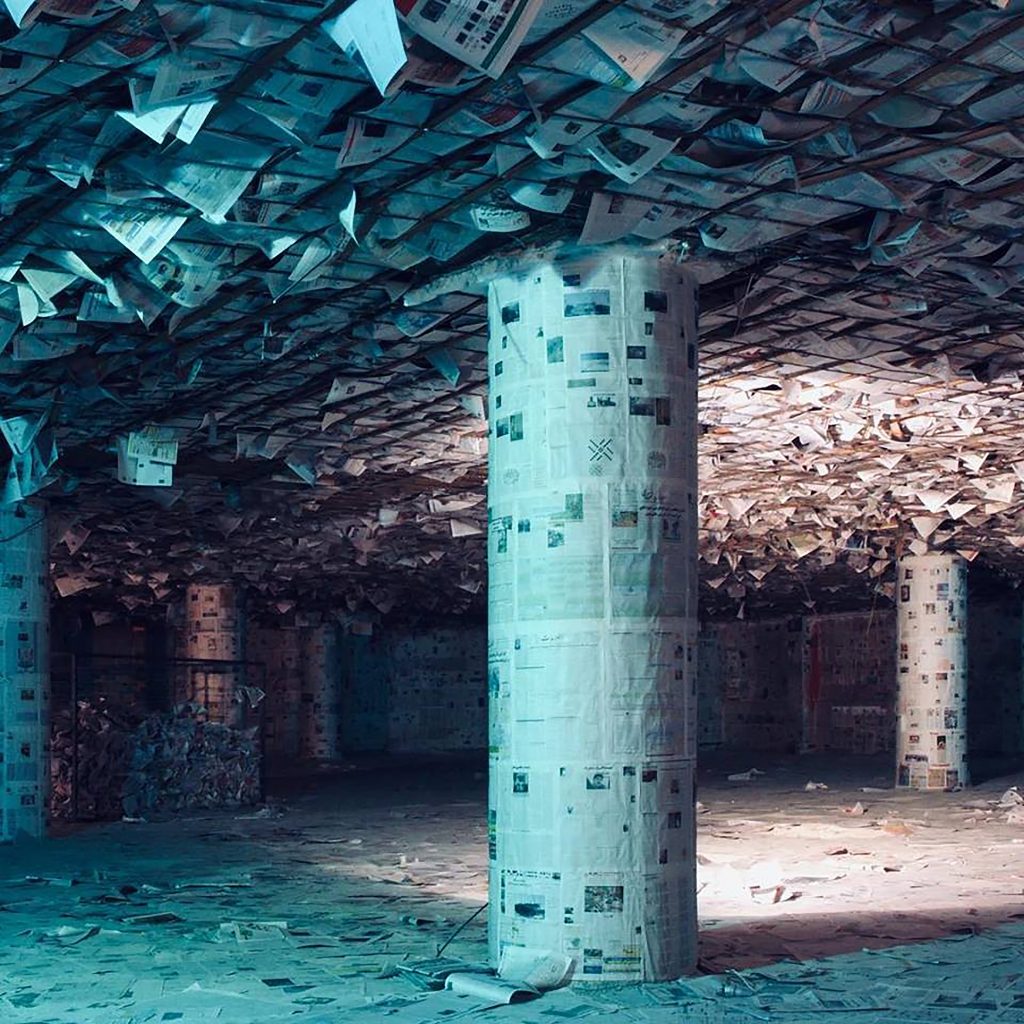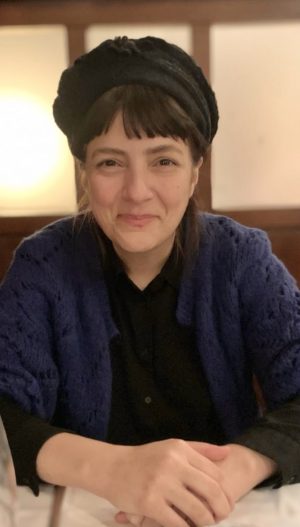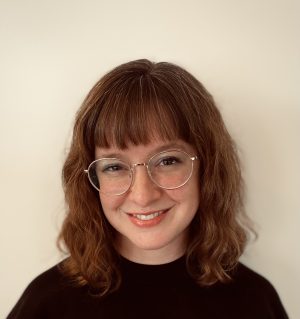To download the episode, subscribe to us in the iTunes store, Spotify Podcasts, and Google Play.
Welcome to a new season of the Ajam Media Collective podcast! In this episode, Belle interviews Dr. Pamela Karimi, Professor of Art Education, Art History & Media Studies at UMass Dartmouth, about her book, Alternative Iran: Contemporary Art and Critical Spatial Practice (Stanford University Press, 2022).
History, art practices, feelings, politics, and physical space coalesce in the “alternative Iran” Karimi presents in her book and in this podcast. Karimi outlines the contemporary alternative art scene in Iran since the 1990s, illustrating historical nuances and shifts in what it means to make transitory and ephemeral art in different urban and rural spaces of Iran. She describes the common misconception that all “underground art” in Iran is fully outside the purview of the state, exploring instead the complexities of alternative art-making in contemporary Iran.
As Karimi discovered in her research, while there definitely is underground art – art shown, installed, or performed without government permission – in Iran, there is also art that engages in elements of political activism that does have permission from the government to take place. A great deal of contemporary art making takes place in a gray zone of “loose covertness” in between these two extremes on the spectrum of permission, which is constantly negotiated and renegotiated by artists, galleries, and government officials.
In the episode, we discuss two works in particular that encapsulate the elements of history and feeling within transitory spaces that Karimi explores in the book. One is an art installation made by Iranian artist Parham Ghalamdar (whose work has been previously profiled on Ajam and who has also contributed to the site), in which he transformed an abandoned leftist safehouse from the 1970s into a stage for calligraphic murals for a private audience.

We also discuss an installation by artist Farideh Shahsavarani, I Wrote, You Read, in Ettela’at Newspaper’s former headquarters in Tehran.

The episode ends with a discussion of how Karimi might have written this book differently if it were written after the Women, Life, Freedom movement in Iran, which began mere days after her book came out. She notes that the “art has become bolder” since the recent protests began, and the nuanced relationships between artists and the state that she uncovers in Alternative Iran over the last several decades shifted once more at this pivotal moment.
Guest
Pamela Karimi

Pamela Karimi is a Professor of Art Education, Art History & Media Studies at UMass Dartmouth. An architect and historian of art and architecture, her expertise lies primarily in the art, architecture, and visual culture of the modern and contemporary Middle East. She is the author of Domesticity and Consumer Culture in Iran: Interior Revolutions of the Modern Era and co-editor of Images of the Child and Childhood in Modern Muslim Contexts, Reinventing the American Post-Industrial City & The Destruction of Cultural Heritage in the Middle East: From Napoleon to ISIS. Her most recent book, Alternative Iran: Contemporary Art and Critical Spatial Practice, was published in September of 2022. Her forthcoming book, titled Women, Art, Freedom: Artists and Street Politics in Iran, is set to be released later this year.
Host
Belle Cheves

Belle Cheves is an editor at Ajam Media Collective and a Postdoctoral Research Fellow at Bard College. Her research focuses on the history of family in Qajar Iran, specifically on how transformations of marital practices and affective perceptions of gender, race, and ethnicity shifted understandings of kinship, enslavement, and domestic service over the course of the nineteenth and twentieth centuries.
Credits
Episode No. 38
Release Date: 26 February 2024
Recording Location: Princeton, NJ
Recording Date: 17 September 2023
Produced by Belle Cheves
Audio Editing: Belle Cheves and Nicholas Gunty
Music: Yavaran (Intro: “404 day in heaven” Outro: “Har Chi”)
Cover Image: Courtesy of Parham Ghalamdar via Pamela Karimi. Ghalamdar, ELF Crew, and Blind, 2013, Tehran. Graffiti in an abandoned water canal.











